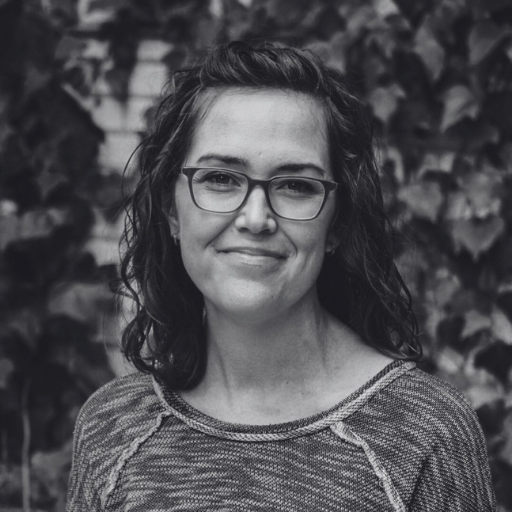On parenting as history starts up again
What I'm telling my children about a future where democracy's triumph no longer feels inevitable
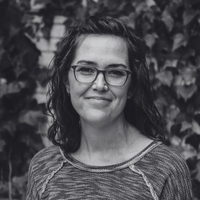
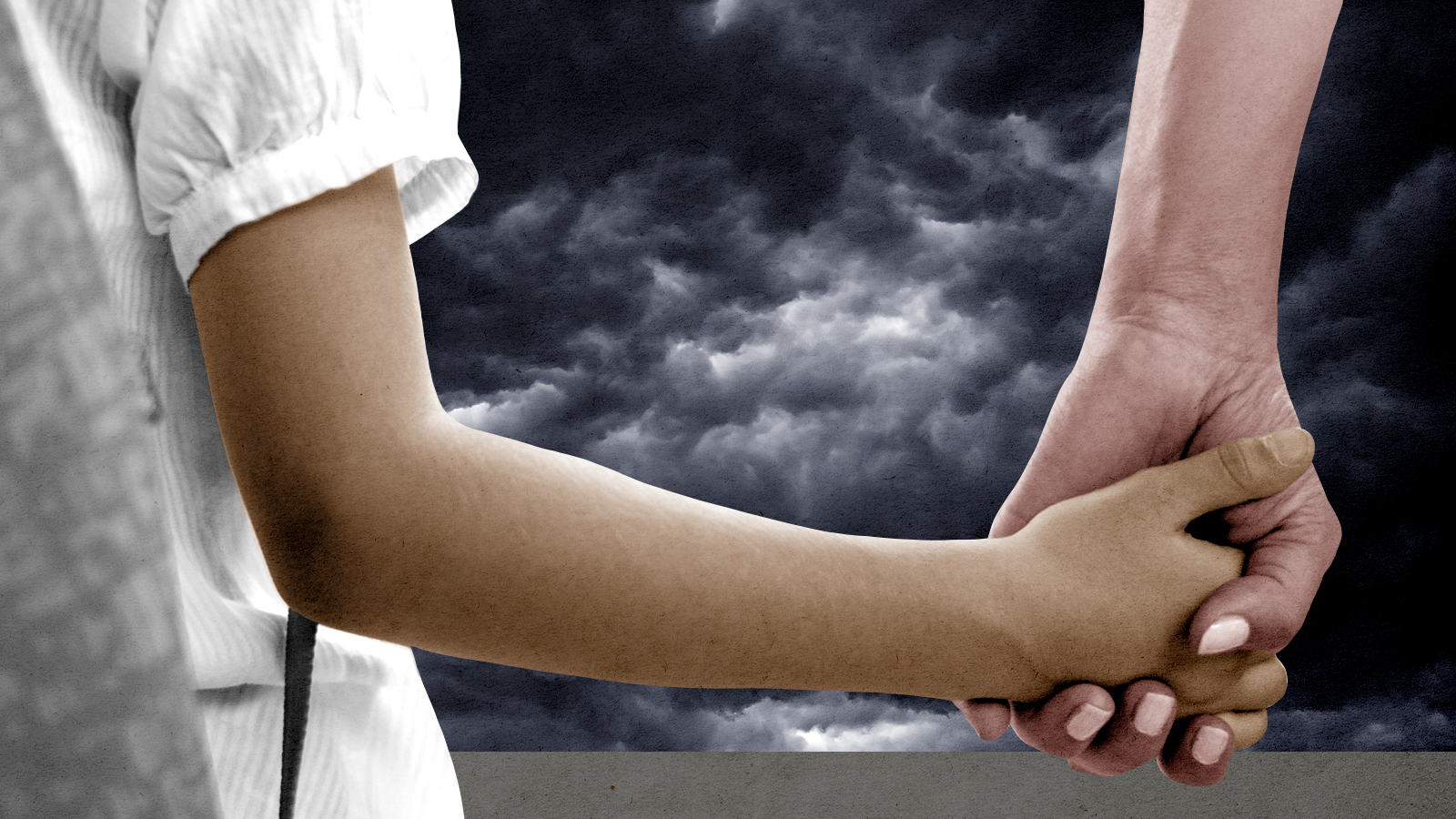
A free daily email with the biggest news stories of the day – and the best features from TheWeek.com
You are now subscribed
Your newsletter sign-up was successful
I remember where I was when I first heard the Gulf War was beginning. I was 8-years-old and in third grade, standing on the bleacher-like steps of the music classroom in my small-town Texas elementary school. I pushed towards the center of a cluster of students so I could learn more.
Chuck, a history buff of a little boy who loved discussing World War II and playing with G.I. Joes, suddenly found himself the center of attention. His tank knowledge made him our regional wartime expert, and we crowded around to hear how he thought events in the Middle East might play out — never mind that most of us couldn't find the region on a map. I don't remember what Chuck said, but I do recall leaving the room with my heart soaring and exhilarated, flush with feelings of national impenetrability and pride.
From what I could tell, Kuwait was a speck of a country on a continent far away. I looked at a globe and traced the distance between my house in Texas and where my grandparents lived in Washington. I knew how long it took for me to get there. I spun the globe and compared this to the distance between Texas and Iraq — incalculable for my young mind, which even then showed a proclivity for English over math.
The Week
Escape your echo chamber. Get the facts behind the news, plus analysis from multiple perspectives.

Sign up for The Week's Free Newsletters
From our morning news briefing to a weekly Good News Newsletter, get the best of The Week delivered directly to your inbox.
From our morning news briefing to a weekly Good News Newsletter, get the best of The Week delivered directly to your inbox.
That settled it: I was untouchable. The United States was outside the reach of Saddam Hussein's vengeance. The big blue ocean between us was all the assurance I needed that I was safe.
But based on what I'd just heard from Chuck, Saddam wasn't safe. And this — my first taste of hating a faceless, nameless enemy — stirred up a dark delight in my heart. I had no real metric to calculate the sorrow and brutality of war. I did not know of euphemisms like "collateral damage" or "friendly fire." I hadn't heard of chemical weapons or innocent civilians being used as human shields. To me, war was something simple and flat with no known meaningful costs and no complexity, a playground game scaled up. The United States was good. Saddam Hussein was bad. We would win. He would lose. God was on our side. Saddam was evil.
I've been thinking about this a lot these last few days, perhaps because as we stand on the precipice of what might become a new World War, my own daughters are around the same age I was then. They've come of age in the time of "forever wars" — a modern concept which has become peculiarly mundane: war as background noise, ceasing to mean much of anything to anyone more than two degrees away from those in uniform.
Murmurs of war have come closer than usual to our family this year; some of our dearest friends are from Myanmar, so my children have learned words like coup and junta and military dictatorship and civil war. They've shared a roof with refugees. And yet, this brush with war feels different.
A free daily email with the biggest news stories of the day – and the best features from TheWeek.com
Some say this war hits closer to home because we Americans are all biased towards Europeans, that our sympathies are stirred more strongly when the victims look like us and their culture feels familiar. We are rarely cognizant of all our biases, so undoubtedly this plays a role.
But I don't think it's as one-dimensional as that. A sovereign and fledgling democracy has been invaded by an autocratic nuclear power, and though global response has been swift and strong in many ways, I can't shake the feeling that most democratic leaders, including our own, really don't know what to do about it.
Thus the news of the last few days has shone a blindingly bright spotlight on the ground beneath my feet, and I've been forced to reckon with the truth: What I wanted to believe was solid is riddled with holes and ditches, thin in some places and perilously near an entirely new way of living of which I know nothing. And my job is to get my children safely across, to give them the lessons they need to navigate a future where democracy's triumph no longer feels quite so inevitable.
I'd like to dismiss my concern here as a byproduct of the 24-hour news cycle or a consequence of my checking Twitter early each morning to see if Ukrainian President Volodymyr Zelensky is still alive. But it's not just about Ukraine. Slowly dawning on me for years, my awareness of our democracy's vulnerability has accelerated in the last 12 months or so. What felt solid is turning to sand in my hands.
On the domestic front, growing polarization threatens our capacity for anything but partisan entrenchment. The political fringes on both ends of the spectrum threaten liberal democratic ideals. From the far right: storming the Capitol and pushing to overturn legitimate election results. From the far left: silencing dissent and canceling people. From both: a refusal to see the other side as fully human.
On the global stage, citizens of Western democracies can no longer live under the illusion of our own system's tactical superiority. Sometimes democracy loses. And democracy's wane isn't only seen in Russia's appetite for Ukraine, which is unfettered in part by Putin's belief that the West was so self-absorbed and distracted we wouldn't balk too much if he took just a nibble. We also see it in the United States' inglorious departure from Afghanistan, where we abandoned allies who saved American lives. We see it in the ease with which Western institutions capitulate to the genocidal government of China, self-censoring and tiptoeing around the economic powerhouse to which we are beholden, on garish display during the Olympics.
Few adults have the same unjaded view of our countries and governments we did as children. Some have even gone so far as to see any global defense of democracy as evidence of American hubris, imperialistic and culturally arrogant. But the shift I'm feeling is more than a natural evolution of perspective. So many of us came of age considering a thriving democracy to be our birthright. We no more worried about losing democratic values than we worried about losing gravity. We were nonchalant, careless.
And so today, as I speak to my children about what's happening in Eastern Europe, I consider the reality that my girls may never have a moment like the one I had, standing in my third grade classroom, awash in confident patriotism. And maybe, despite how terrifying it feels as their mother to be sending them out into such an unpredictable world, this is for the best. After all, living in resistance always grows strength.
From the time my daughters were young, we've had a sign hanging above our kitchen table: Seek Justice. Love Mercy. Walk Humbly. It's an excerpt from Micah 6:8, and as I find myself reeling in these uncertain times, worrying about my childrens' future and wondering how I can equip them for it, I find the ancient commands pull me in. They have a certain gravity to them; they are an axis around which we can order our lives, even when the whole world seems to be spinning chaotically.
Seek justice: Stand up bravely for the underdog, whether on the playground or the battlefield. Use your energy, your power, your voice, and your privilege to expand the boundaries of human dignity and flourishing. This may cost you everything, and that's not too high of a price to pay.
Love mercy: Pay attention to who is getting left behind and left out. Do whatever you can to make it right. Love your neighbor as yourself; be curious and kind and respectful. Never confuse a leader with the people forced to follow him — you can hold the first to task while simultaneously extending grace and mercy to the second. Be willing to personally suffer and sacrifice so that others don't have to suffer and sacrifice quite so much.
Walk humbly: Do not think too much or too little of yourself (or your government). Find the middle space between unchecked pride, which will always result in arrogance, and a self-deprecating equivocation that forgets it has anything of value to offer the world. The best displays of humility often look like quiet and unwavering conviction.
Each day, I weave these reminders into conversations with my children. Each day, I pray that conviction is forming in their hearts, deep and steadfast. Each day, I remind myself that as mothers and fathers, we cannot solve this current geopolitical crisis at our kitchen table. But we can raise the sort of children who someday might.
Carrie McKean is a writer who lives in Midland, Texas with her husband and two daughters. Her writing has appeared in The New York Times and Texas Monthly, among other local publications. You can find her on Twitter at @MckeanCarrie or at carriemckean.com.
-
 The ‘ravenous’ demand for Cornish minerals
The ‘ravenous’ demand for Cornish mineralsUnder the Radar Growing need for critical minerals to power tech has intensified ‘appetite’ for lithium, which could be a ‘huge boon’ for local economy
-
 Why are election experts taking Trump’s midterm threats seriously?
Why are election experts taking Trump’s midterm threats seriously?IN THE SPOTLIGHT As the president muses about polling place deployments and a centralized electoral system aimed at one-party control, lawmakers are taking this administration at its word
-
 ‘Restaurateurs have become millionaires’
‘Restaurateurs have become millionaires’Instant Opinion Opinion, comment and editorials of the day
-
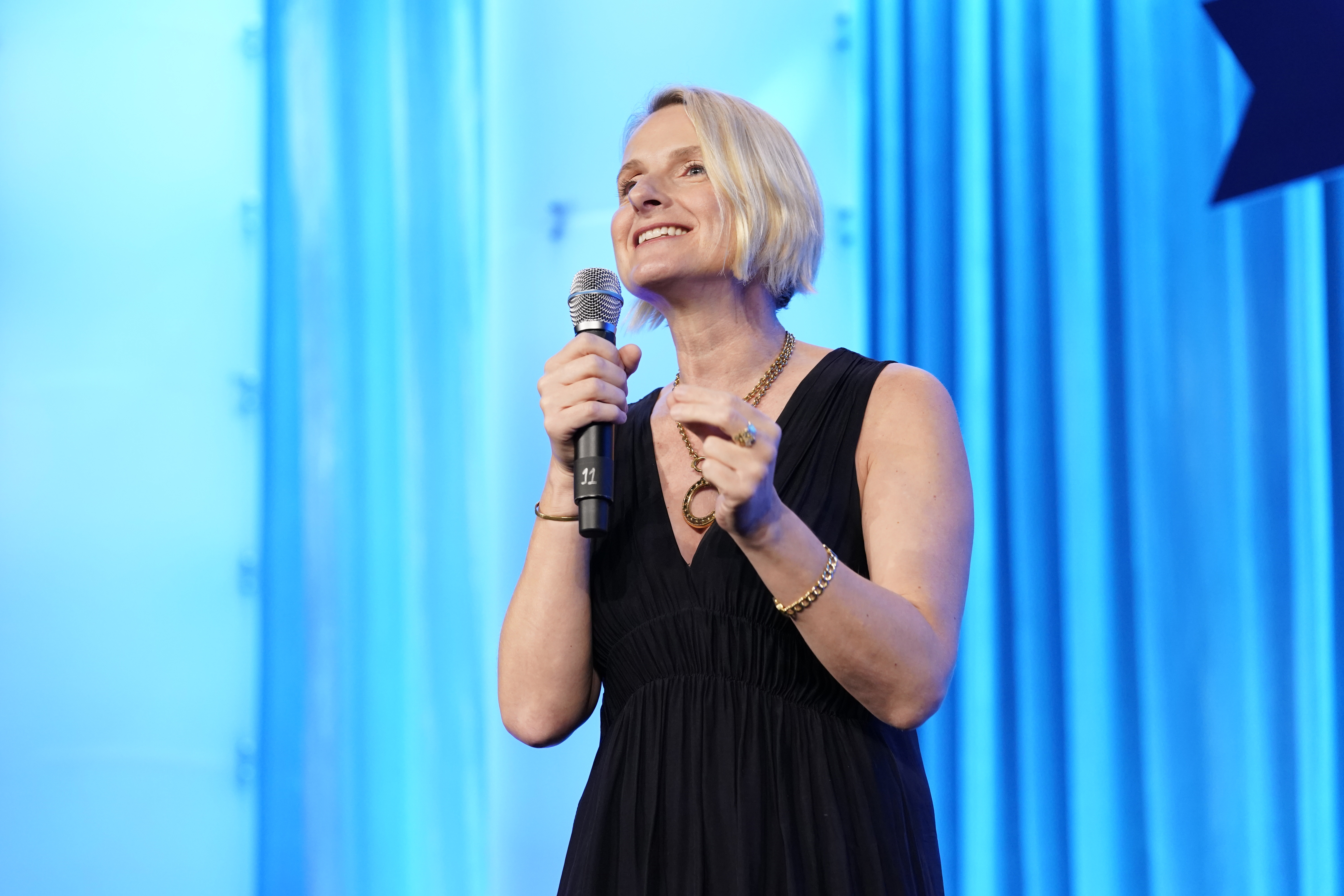 Will Elizabeth Gilbert's decision set a 'dangerous precedent' for book censorship?
Will Elizabeth Gilbert's decision set a 'dangerous precedent' for book censorship?Talking Point Her latest novel sparked backlash after she revealed it would be set in Russia.
-
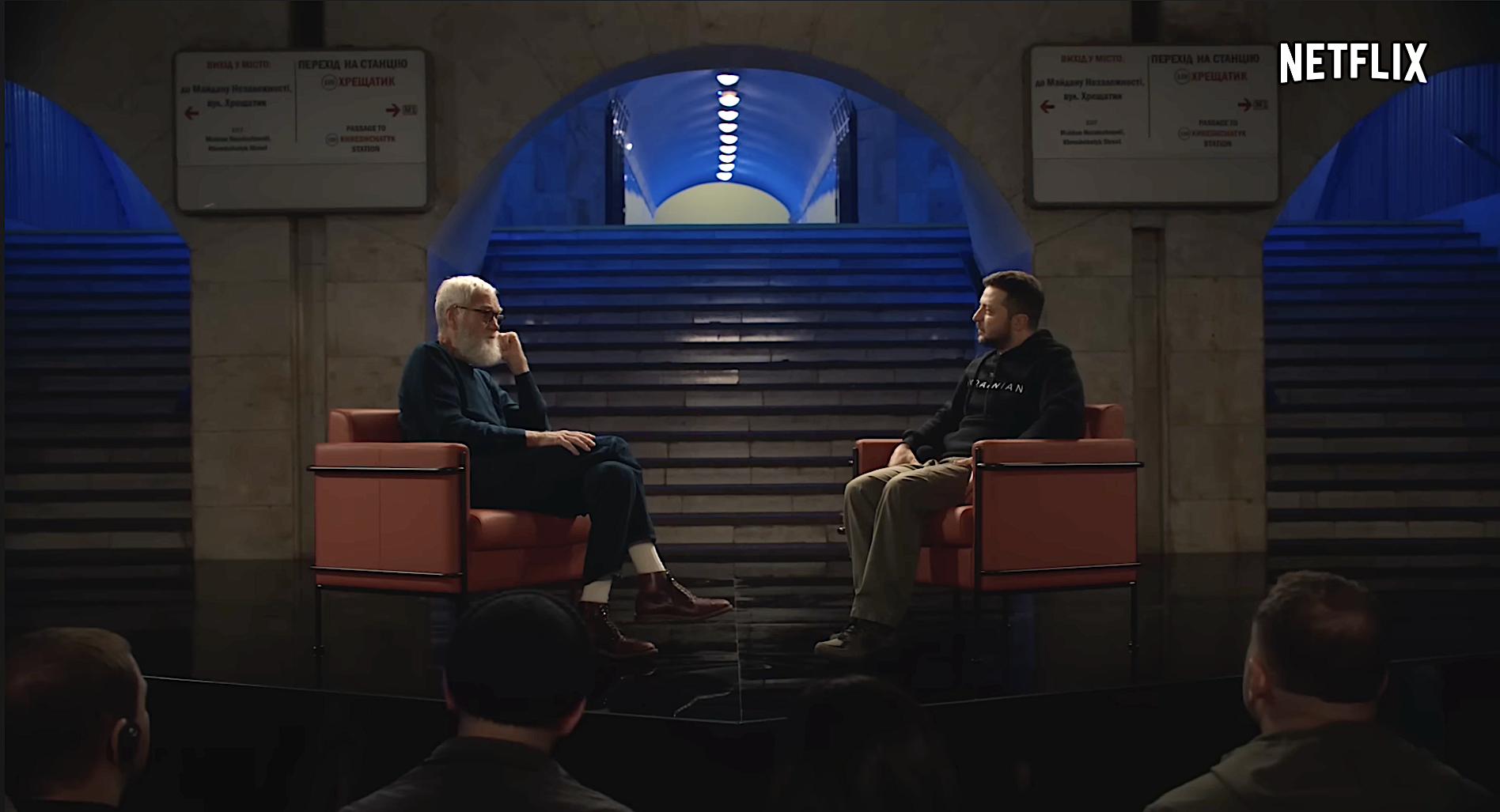 Ukraine's Zelensky tells David Letterman a Russia joke during Kyiv subway interview
Ukraine's Zelensky tells David Letterman a Russia joke during Kyiv subway interviewSpeed Read
-
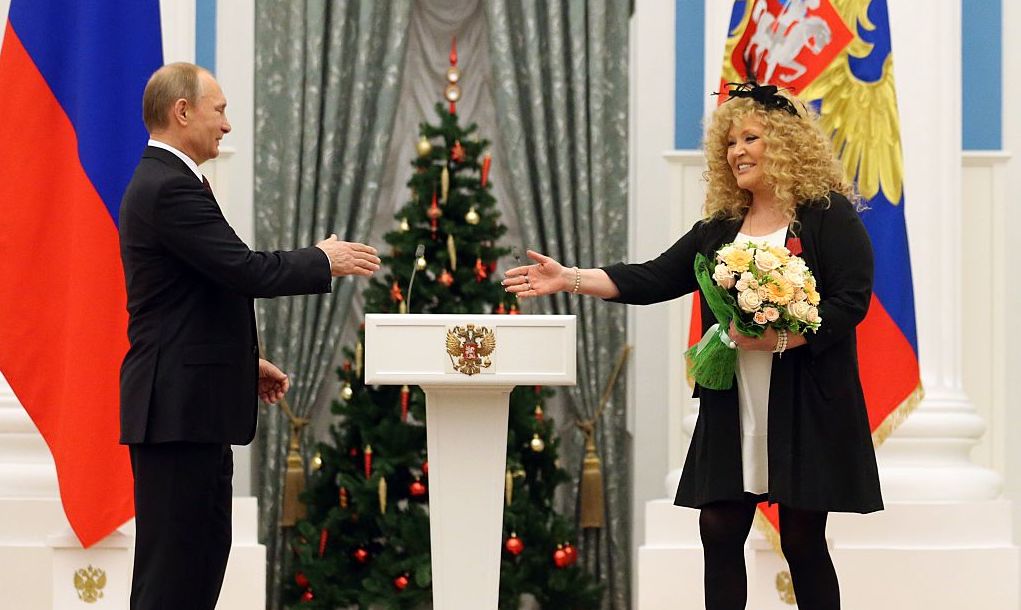 Russian pop icon Alla Pugacheva criticizes Ukraine invasion, asks to be labeled 'foreign agent'
Russian pop icon Alla Pugacheva criticizes Ukraine invasion, asks to be labeled 'foreign agent'Speed Read
-
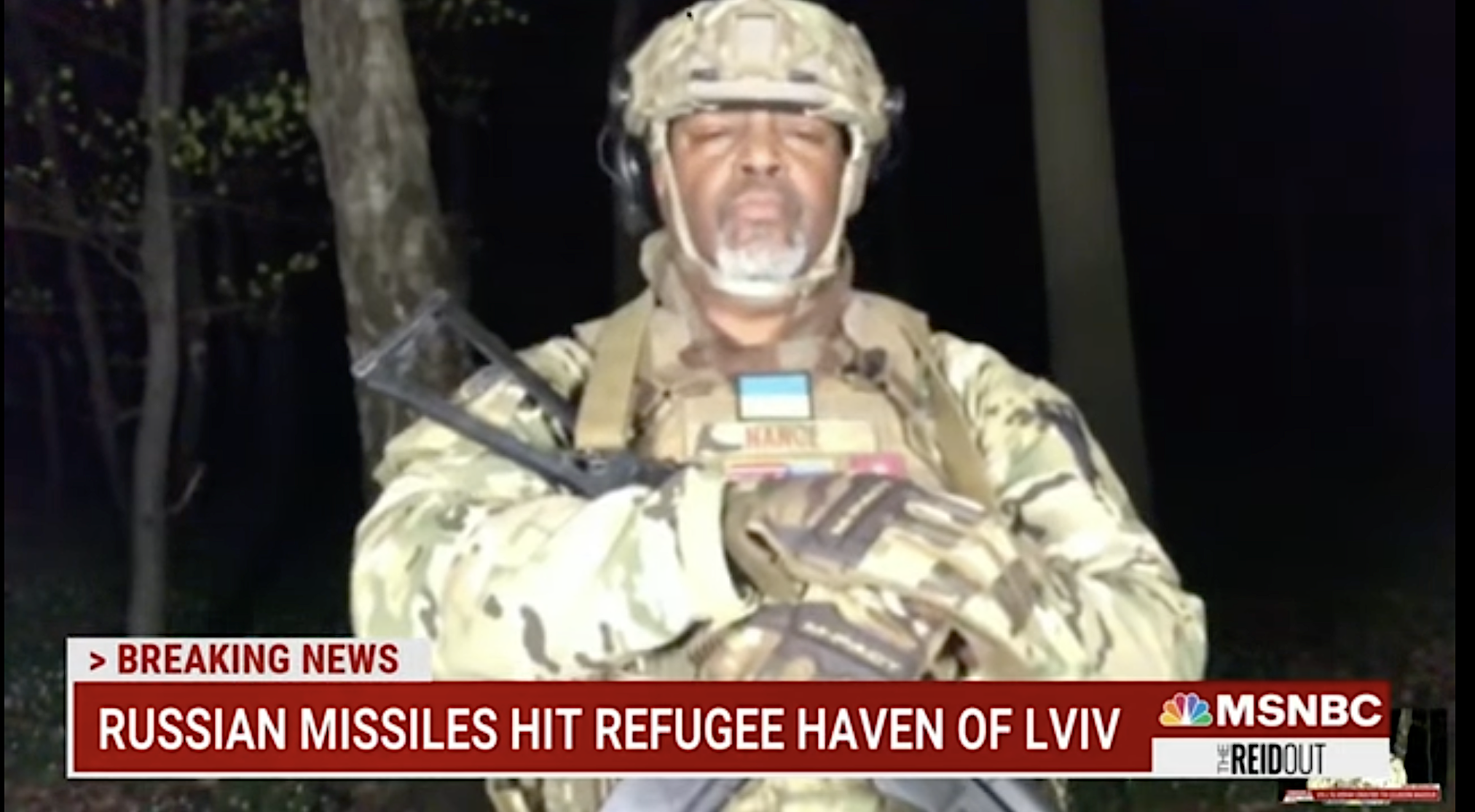 MSNBC contributor Malcolm Nance explains why he's fighting for Ukraine in its international legion
MSNBC contributor Malcolm Nance explains why he's fighting for Ukraine in its international legionSpeed Read
-
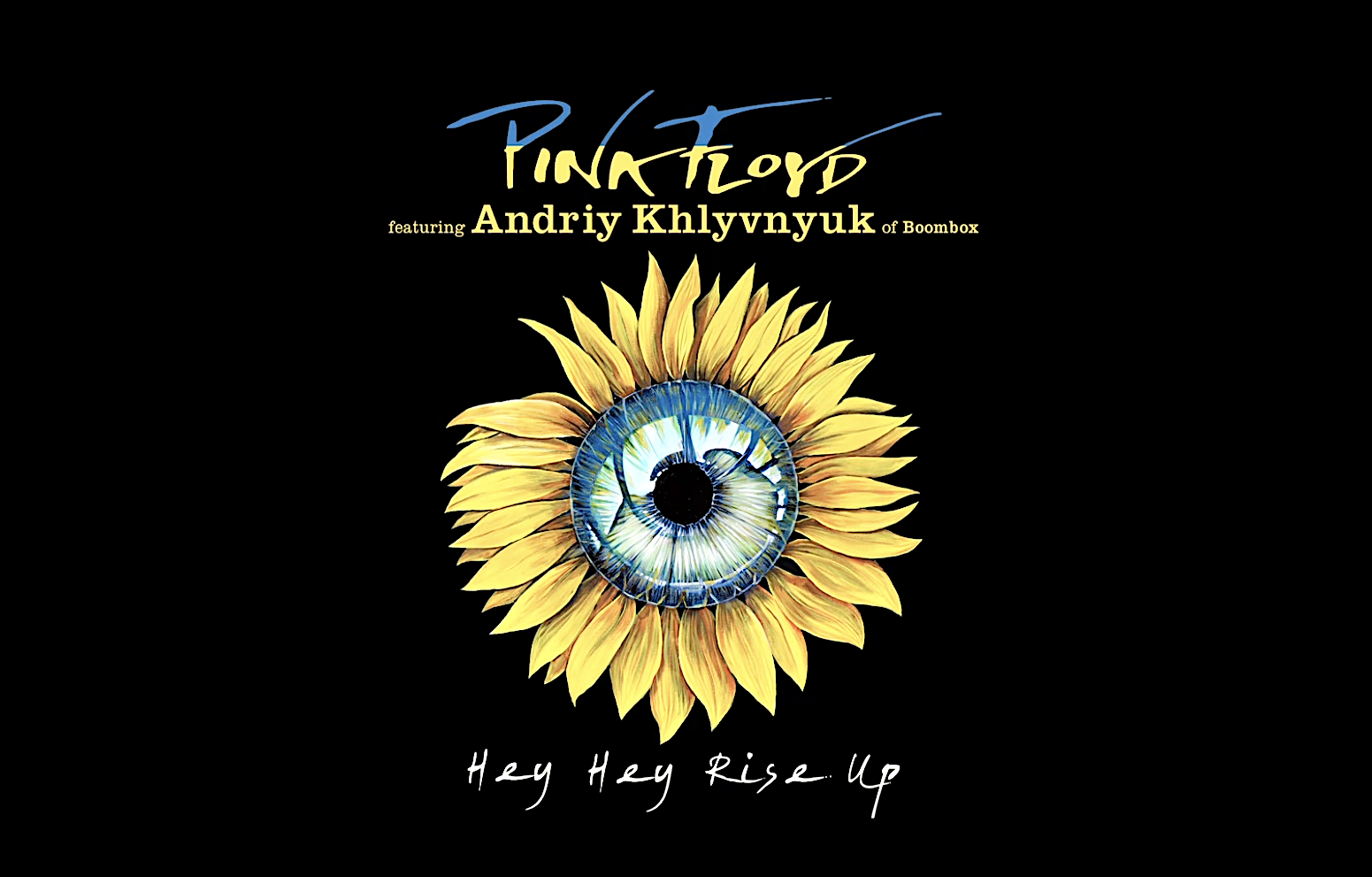 Listen to Pink Floyd's Ukraine charity single 'Hey Hey Rise Up,' the band's 1st new music since 1994
Listen to Pink Floyd's Ukraine charity single 'Hey Hey Rise Up,' the band's 1st new music since 1994Speed Read
-
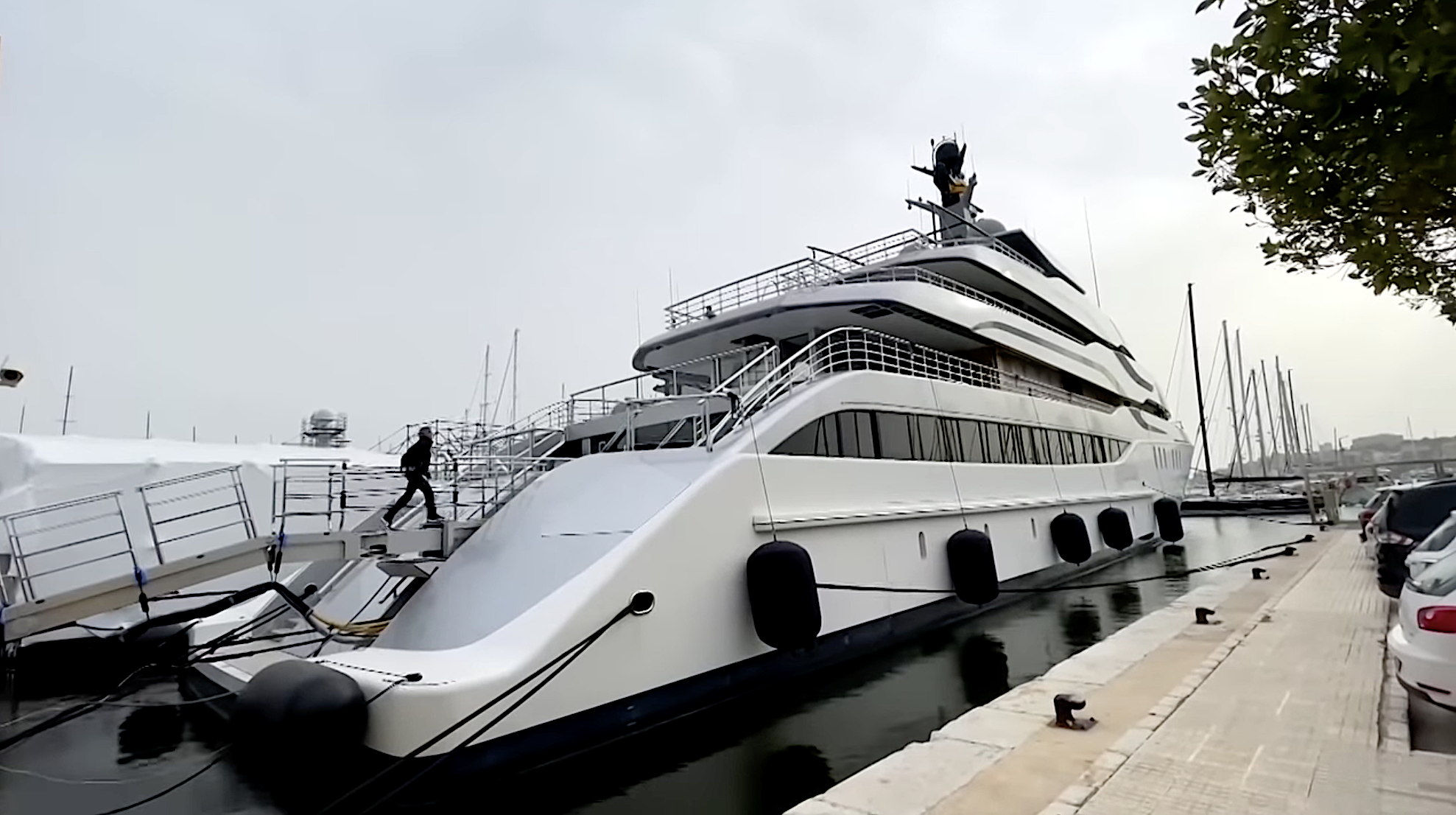 U.S. seizes its 1st Russian oligarch superyacht since Putin's Ukraine invasion, intends to keep it
U.S. seizes its 1st Russian oligarch superyacht since Putin's Ukraine invasion, intends to keep itSpeed Read
-
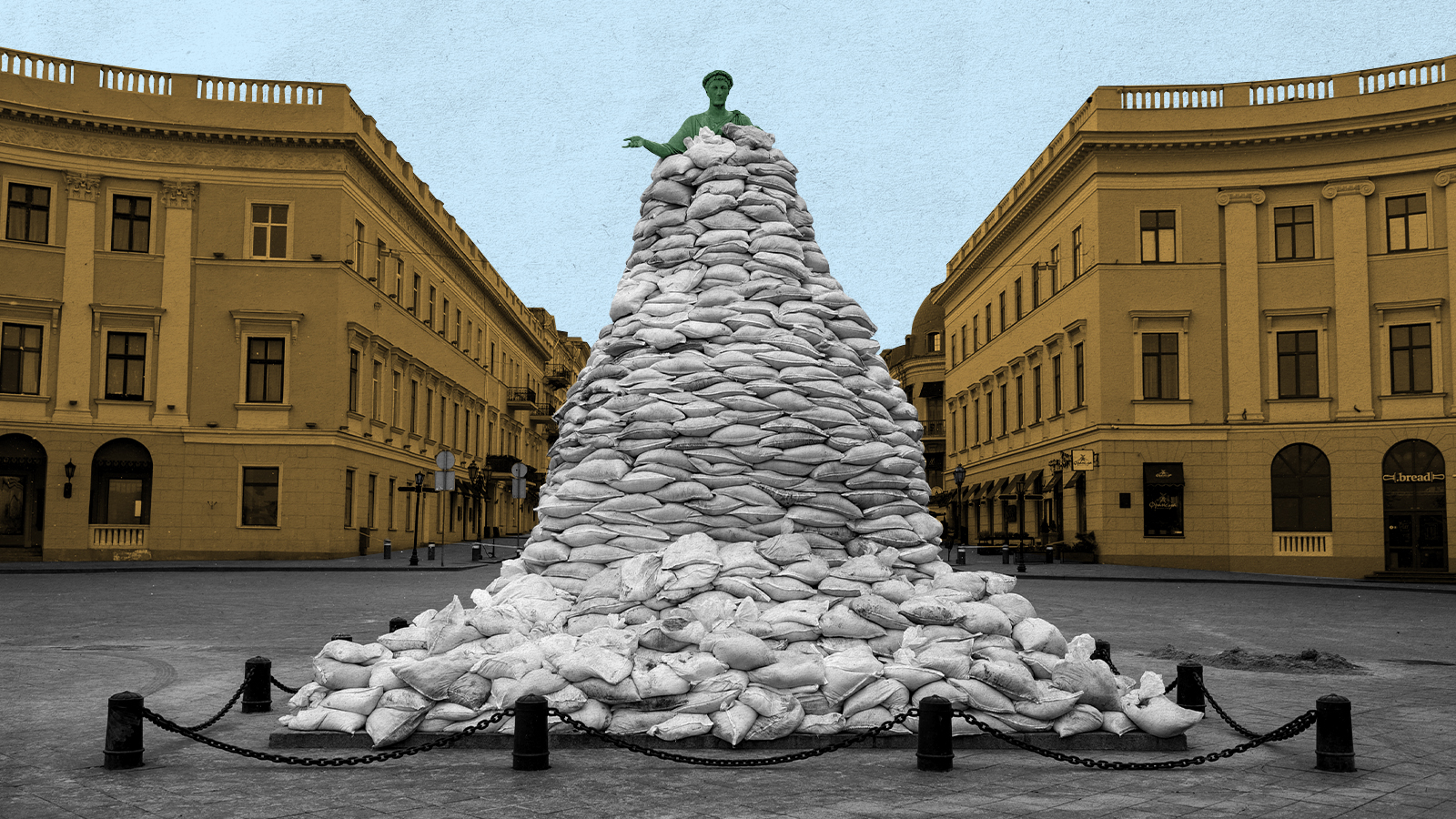 Why people fighting for their lives would stop to save a statue
Why people fighting for their lives would stop to save a statueopinion The lesson in memory America can learn from Ukraine
-
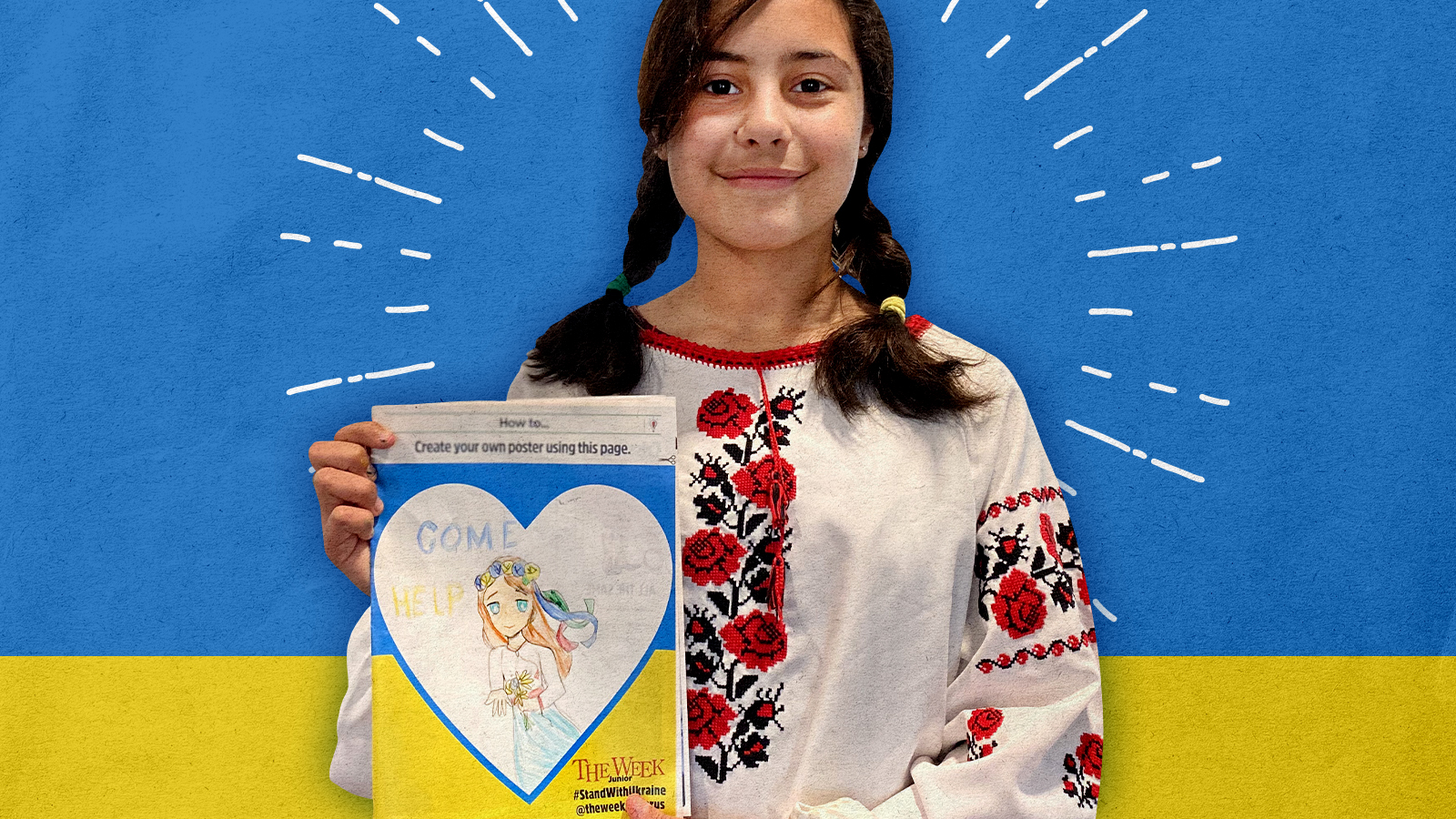 See 11 children's posters for peace in Ukraine
See 11 children's posters for peace in Ukrainefeature 'I wanted to support them, so I tried my best at this drawing'
